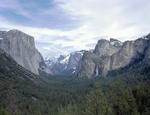This past June, due to concerns about public safety, wildlife disturbance and potential impacts to the visitor experience and park resources, the National Park Service enacted an interim policy banning the operation of unmanned aircraft.
While taking a largely educational stance during the early phases of publicizing the ban, Yellowstone rangers have developed several criminal cases involving egregious violations of this ban.
World-wide attention was drawn to an incident where an unmanned aircraft crashed into Grand Prismatic Spring the afternoon of August 2. Theodorus Van Vliet of the Netherlands crashed his unmanned aircraft into the iconic hot spring. Van Vliet, who is cooperating with the ongoing investigation, has been charged with several violations of federal law and if found guilty faces up to $5,000 in fines and/or six months in jail and/or five years on probation.
Park staff members are still trying to determine if the material from which the unmanned aircraft is constructed poses a threat to the hot spring. Attempts to locate the device both from the ground and from a manned helicopter overflight have turned up possible areas in the pool where the unit may have come to rest. If its location can be confirmed, park staff members will determine if there is a way to safely remove the device without damaging the thermal feature.
Last week, rangers responded to another incident regarding the illegal operation of an unmanned aircraft in the park. Donald Criswell of Molalla, Oregon, was charged with violating the ban after he flew his unmanned aircraft over the crowded Midway Geyser Basin and close to bison on August 19.
Earlier this week, charges were filed against a German national for a July 17th incident in which an unmanned aircraft crashed into Yellowstone Lake near the West Thumb Marina. Andreas Meissner faces several charges including violating the ban on operating unmanned aircraft, giving a false report to a government employee and commercial filming without a permit.
In all criminal cases, the accused is presumed to be innocent until proven guilty, and the government always has the burden of proving guilt beyond a reasonable doubt.
The prohibition on operation of unmanned aircraft in Yellowstone National Park was included in the 2014 update to the Superintendent’s Compendium, which can be found online at http://go.usa.gov/mzRV. It is also highlighted on the front page and inside the fall edition of the Official Park Newspaper which is distributed to visitors at park entrance stations and is also posted to the web at http://go.usa.gov/mzRH.
This ban is being enforced at Yellowstone. Violators will be contacted, investigated and may be subject to confiscation of their unmanned aircraft, a mandatory court appearance and fines
Yellowstone Enforcing Ban On Unmanned Aircraft Operation
All posts are those of the individual authors and the owner
of this site does not endorse them. Content should be considered opinion
and not fact until verified independently.
Sorry, only registered users may post in this forum.


